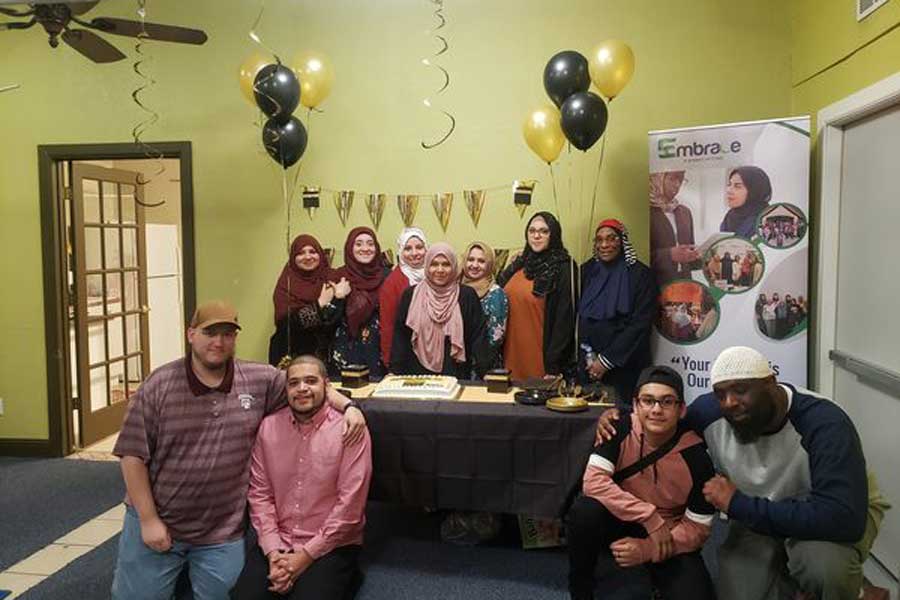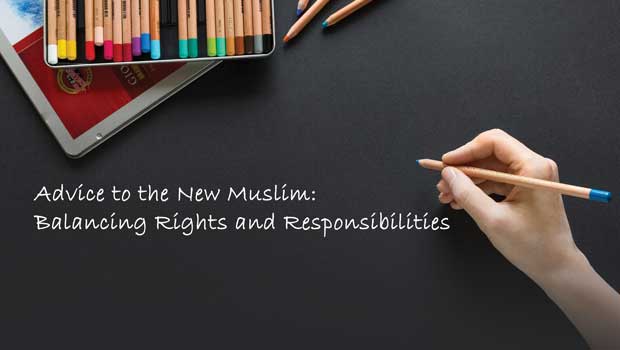Sahl ibn Sa’d reported: The Prophet, peace and blessings be upon him, said, “By Allah, that Allah guides a man through you is better for you than a herd of expensive red camels” (Sahih Bukhari and Muslim). When we consider the immense potential rewards for helping someone navigate their journey to Islam, it is no wonder many Muslims are eager to try. Sadly, some of us do more harm than good when we advise new converts. As good as our intentions might be, many of us make mistakes that can actually confuse or repulse a person who is learning about the deen.
Our newest brothers and sisters look up to us and rely on us to give correct and beneficial advice. Let’s make sure we’re being the best mentors we can be. Here are five tips to make your interactions with new Muslims more helpful and inspiring.
- Be humble and know your limitations. Recognize that some of your Islamic knowledge may be incomplete or could even be incorrect. Very few are trained scholars, and nearly all of us have been influenced by our culture (and not always in a positive way). Many people from Muslim-majority lands have grown up with some false information, superstitions, or cultural practices that were presented as part of Islam. If we are not careful, we might pass incorrect information along to a new Muslim.

For instance, in some countries, Muslim females are taught that women who have their periods during Ramadan should pretend to fast (or actually fast) all day to avoid any “embarrassing” conversations with their menfolk about why they’re eating or drinking. Women, however, should not put on a facade of fasting during Ramadan, in their homes or anywhere else. And they certainly should not fast when they are menstruating just to avoid embarrassment or to protect men in their family from having to notice a menstruating woman. Menstruation is a normal part of female physiology, created by Allah. In addition, a fast performed in a state of ritual impurity will not be accepted by Allah SWT.
There are many other examples of cultural beliefs that get passed off as Islamic rules. “Women shouldn’t go to the mosque” is another example, as is “The devil will eat with you if your nails are long,” and “If you don’t fold your prayer mat, Shaytan will pray on it.” Keeping in mind that we might have grown up with some beliefs that are not Islamically correct, we should think very carefully before we give advice to new Muslims and pass it off as “truth.” New converts trust established Muslims to guide them, and many times, they naively assume that we know everything. So, if we are unsure of an answer to a question, or if we realize our culture or superstitions might have influenced our opinion, it’s always best to advise a new Muslim to talk with an imam or scholar, or to consult a reputable website. Better yet, help them find a class for new converts where many of their questions can be answered correctly.
- Keep it positive. Muslims who advise new brothers and sisters tend to focus on explaining the dos and don’ts, with a particular emphasis on the don’ts. Instead of focusing on the negative, like listing everything that is wrong or haraam with a convert’s lifestyle, start with encouraging them to know and love Allah and His Prophet (s). Once someone truly comprehends the magnificence of their Creator and the enlightened way of living as embodied and demonstrated by the final messenger, they will naturally want to understand the divinely revealed rules and strive to follow them. Lectures, scolding, or negative messages do not inspire people to love Islam. Kindness, warmth, generosity, and patience do.
- Walk the walk. New Muslims are observing what you do. If you tell them that Muslims are brothers and sisters to each other, but they see you backbiting one person and excluding another, they will note your hypocrisy. Oftentimes new Muslims judge Islam on the behavior of the imperfect Muslims around them, rather than the perfection of the deen So, remember: our actions speak louder than our words. We can talk all we want about integrity, honesty, modesty, and kindness, but if we really want to inspire new Muslims, we should show these qualities in our words and actions. We need to strive to be sincere believers and, when we make a mistake, admit that we were not living up to our deen’s high standards and then make amends.
- Encourage them. Be kind and patient. New Muslims have an immense amount of information and practical observances to learn: how to pray, how to make wudu, the intricacies of the Islamic dress code and gender relations, a lengthy list of Arabic words and phrases, and so much more. It takes a long time to develop a firm understanding of the deen and a strong Islamic personality.
Don’t expect them to be perfect overnight! If you see them doing something haraam, find a way to advise them kindly and gently. Think of the Prophet’s (s) forbearance when the man urinated in the masjid. He (s) did not shame, scold, or punish the man, but simply washed the unclean area and explained the importance of purity in the masjid.
I have seen newly converted sisters being scolded and shamed for wearing nail polish, for having noisy babies who whimper during prayers, or for wearing clothes that are too tight. Some of them never came back to the masjid! If the Prophet (s) could patiently endure something as inappropriate as a man urinating in the masjid, can’t we be more patient with our brothers’ and sisters’ behavior as well?
You might say, “Well, they need to know the rules in order for their worship to be accepted, and in order to avoid sin.” While this is true, it is also important to consider the delivery of your message. Following the example of our beloved Prophet (s), advice should always be given in a loving, gentle way. For instance, you could say, “I love the color of your nail polish! Since our wudu doesn’t count if the water can’t reach our fingernails, I like to paint my nails when it’s the time of the month when I can’t pray.”
- Include and appreciate them as they are. Help new Muslims feel like a beloved and welcome part of the community. Recognize the unique experiences, talents, and perspectives they bring to the table. Don’t try to mold them to fit into your ethnic group or your image of what a Muslim looks like/wears/eats. Islam is for all people and all times. No culture has a monopoly on Islam.
Here are a few examples. A female convert who grew up in the U.S. does not have to wear a salwar kameez or an abaya to be appropriately dressed. She can find clothes in local stores that are modest and reflect her personal style and cultural background. A young man can wear blue jeans and sneakers instead of a thobe and still be sincere; his attitude is more important than his wardrobe or “looking the part” of a pious Muslim. Latino and African American Muslims can, and should, bring their favorite dishes and delicacies to the masjid potluck because Arabic and Indo-Pakistani foods are not the only viable options! As long as the ingredients are halal, they are all “Islamic” foods. These are just some examples based on stories I have heard from fellow converts over the years. As a whole, we Muslims need to do a lot more work on being inclusive and open-minded!
Let’s also remember that converts should not have to shed their entire identity to fit into the fold of Islam. While they must replace or refine any practices that compromise their deen, they can still celebrate what makes them unique. It is very important that they feel an ongoing sense of comfort and enthusiasm while establishing their new Islamic way of life and increasing their dedication to Allah and His deen. Learning and practicing a new faith is already challenging enough. If we make a convert feel like he or she also has to change their personality, style, cuisine, and heritage, it is overwhelming and unnecessary and might drive them away from Islam.
May Allah empower us to be gentle, inspiring, and helpful guides to our newest brothers and sisters in faith. May He see and reward every effort we make to be better mentors. May Allah reward our dawah efforts with His incomparable generosity, blessing us with gifts that are better than a herd of red camels, a fleet of luxury cars, or anything else we might consider the ultimate worldly prize. Ameen.





